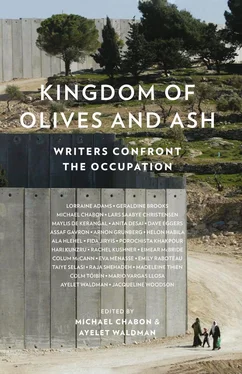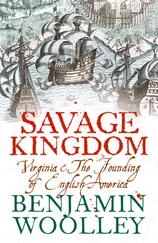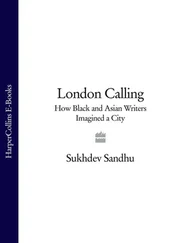When Ayelet came home from that trip she told Michael what she had seen in Hebron. She described the steel bars that had been welded across townspeople’s front doors, sealing them in their homes. She related the frightening moment when a couple of young Palestinian boys had dared to set foot on the main street of their own city, a street on which Palestinians are barred from walking, putting themselves at risk and at the mercy of heavily armed IDF troops, out of some combination of boredom, bravado, and desperation. She described how disgusted she had been by graffiti scrawled on walls across Palestinian Hebron calling, in Hebrew, for the death of Arabs. She told him the story of the things she had seen and heard, and as Michael listened, his reluctance, the product of decades of disenchantment and disengagement, began to fade.
As it faded we both began to realize that storytelling itself—bearing witness, in vivid and clear language, to things personally seen and incidents encountered—has the power to engage the attention of people who, like us, have long since given up paying attention, or have simply given up.
Storytelling—that was a territory, free and unrestricted, that we knew well. More important, we knew a lot of story tellers : creative writers and novelists whose entire job consists, according to Henry James, of being “one on whom nothing is lost.” Professional payers of attention, they had the skill and the talent, if we could engage them, to engage others, using their mastery of language and eye for telling detail to encourage people to stop averting their gazes, to take another look, and maybe see something that fifty years of news reports, white papers, and propaganda had missed.
So, conscious of the imminence of June 2017, the fiftieth anniversary of the occupation, we put the word out—to writers on every continent except Antarctica, of all ages and eight mother tongues. Writers who identified as Christian, Muslim, Jewish, and Hindu, and writers of no religious affiliation at all. Some had already made clear and public their political feelings on the subject of Palestine-Israel, but most had not, and many acknowledged from the outset that they had never really given the subject more than a glancing consideration. For many it was their first visit to the area; some were returning to a place they knew well. The Palestinian and Israeli writers were writing about home. They all came away, as we’d only dared to hope, brimming over with the vividness of the things they had seen, and the need to put it into words, to share the story.
Over the course of 2016, the writers in this volume, in small parties that ranged from a single person to as many as seven individuals, came to Palestine-Israel, on delegations organized by Breaking the Silence. Once there, they spent most of their time in the occupied territories, in East Jerusalem neighborhoods like Silwan, Sheikh Jarrah, and the Shuafat refugee camp; in West Bank cities like Hebron, Ramallah, Nablus, Jericho, and Bethlehem; in West Bank villages including Nabi Saleh, Susiya, Bili’in, Umm al-Khair, Jinba, al-Wallajeh, Kufr Qaddum; and in the Gaza Strip. In these places, the writers met with Palestinian community organizers and nonviolent protest leaders, among them Issa Amro, as well as with shop owners, artists, intellectuals, and laborers, women’s rights advocates and journalists, businesspeople and farmers, grandparents, parents, and children. They also met with Israeli settlers and with Israeli and Palestinian antioccupation activists, human rights lawyers, academics, and writers. In each case, the individual inclination and interest of the writer drove his or her itinerary—some slept over at families’ houses in Palestinian refugee camps, villages, and cities, while others explored soap factories and archeological sites. Some visited the military court, others spent time with bereaved Palestinian and Israeli families. The subjects chosen by the authors were diverse and varied; this breadth of experience, perspective, and narrative is reflected in the pages of this book.
We want to be clear: we had no political expectations of these writers. We invited them to participate in this project based on their literary excellence and their influence over wide and devoted readerships in their own countries and in many cases all around the world. We did not censor them or try to restrict their words in any way. What they saw is what they wrote is what you’ll read. A team of scrupulous fact-checkers labored for months to confirm the veracity and factual basis of each of these essays.
Finally, as with all the other writers involved in this project, neither of us has or will ever receive payment of any kind for our work. All royalties from the sales of Kingdom of Olives and Ash , after expenses, will be divided between Breaking the Silence and Youth Against Settlements, whose hard, unremunerated, twilit work will go on long, long after the reader has turned the last page.
THE DOVEKEEPER
GERALDINE BROOKS
THEIR PLANS WERE QUITE PRECISE: THEY WOULDN’T ATTACK WOMEN, or the elderly, or children like themselves. Their targets, they agreed, would be men in their late teens and early twenties—young men of military age. All this was settled between them before they left the house.
Hassan Manasra, fifteen, took a carving knife from his mother’s kitchen, but his cousin Ahmed, thirteen, couldn’t find the long, daggerlike knife he’d intended to use for his weapon. It took him a while, but finally he located it, concealed in a cupboard, where his father had hidden it for safekeeping.
The Manasras live in a compound of multifamily homes occupying almost a block in the Jerusalem hillside neighborhood of Beit Hanina. In the shared courtyard, half a dozen bicycles of various sizes are propped against a tree or lie in the dirt by the tall entry gate. Ten brothers and their families share the compound, and the children move fluidly through each other’s apartments. Uncle or father, sibling or cousin: it makes little difference. While the stairwells have the provisional, still-under-construction look of dwellings in a constant state of addition, the rooms inside are furnished rather formally: prints of alpine landscapes, velvet-covered sofas, lacy tablecloths. In Ahmed’s bedroom, the sheets have cartoon figures of astronauts. It’s the home of a modestly prosperous clan whose breadwinners run a family-owned grocery store, or work in trades or in transportation.
Until October 12, 2015, Hassan and Ahmed followed the same schedule as all the school-age cousins in the household: go to class, come home, eat, change clothes, and then go play in an area that their uncles had cleared for them on the unused land beneath the highway overpass that separates Beit Hanina from the adjacent neighborhood of Pisgat Ze’ev. Sometimes the cousins played soccer, but Hassan and Ahmed particularly enjoyed training for parkour—the gymnastic running discipline that uses urban space as an obstacle course. The concrete pylons and grassy embankments under the highway were ideal for practicing vaults and tumbles.
The highway divides two East Jerusalem neighborhoods—the House of Hanina and the Peak of Ze’ev—that face each other across a shallow valley. Both are long-settled places. Beit Hanina was home to a few farming families as early as Canaanite times; in Pisgat Ze’ev, excavations have uncovered ritual baths from the Second Temple period.
Both neighborhoods have seen explosive population growth since 1967, when Israel captured this territory from Jordan in the Six-Day War. In the years since, their built-up areas have reached out to each other across land that once supported only olive groves and vineyards. Now the busy highway is all that marks the division between the Palestinian neighborhood and the Jewish one. Pisgat Ze’ev is the last stop on the Jerusalem tramline, Beit Hanina the second-to-last. Residents of the two neighborhoods live cheek by jowl, yet they inhabit two different worlds.
Читать дальше











